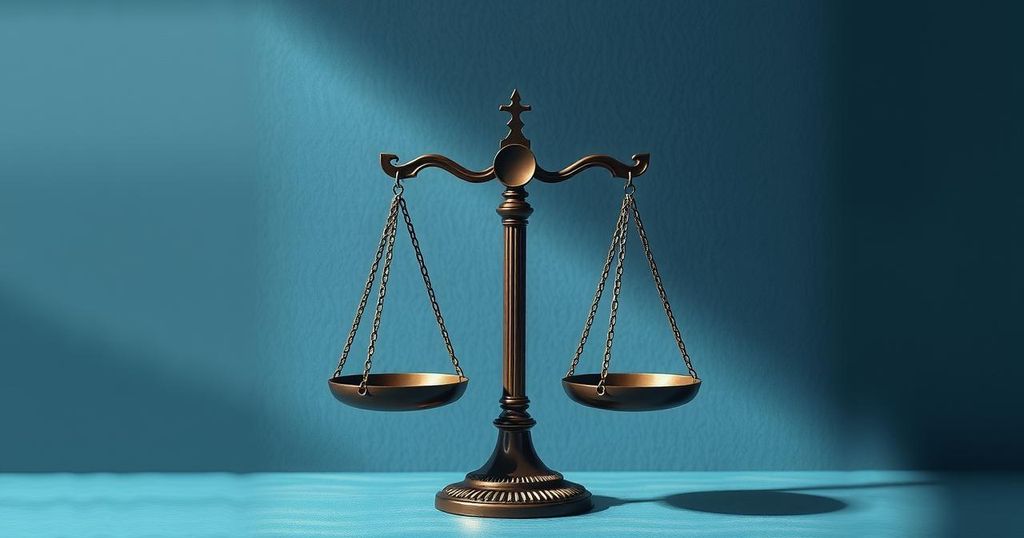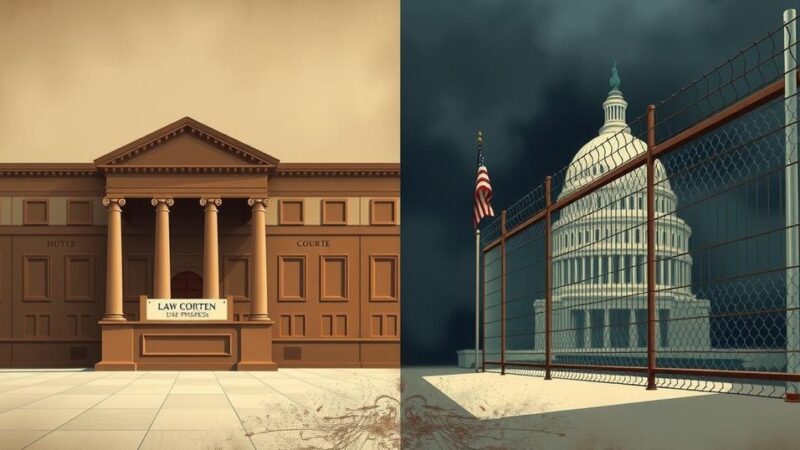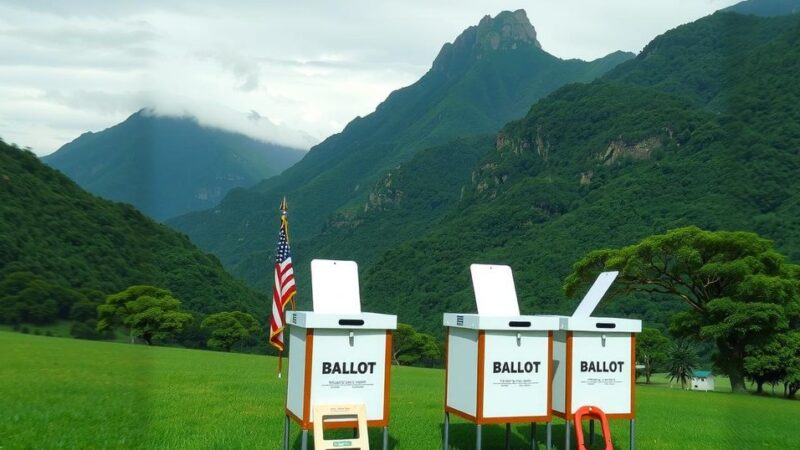The new temporary constitution of Syria centralizes power in interim President Ahmed al-Sharaa, lacking adequate rights protections for minorities. This move, following the civil war, raises concerns regarding democracy, as criticism mounts over the absence of checks on presidential power. Minority groups, especially Kurds, express apprehension regarding representation, calling for a decentralized and equitable government structure.
Syria’s recently adopted temporary constitution significantly centralizes power within the hands of interim President Ahmed al-Sharaa and lacks adequate protections for minority rights, as noted by various experts. This declaration, effective from Thursday, introduces a five-year transitional period following the ouster of Bashar al-Assad’s regime amid ongoing civil unrest.
Constitutional law expert Sam Dallah highlighted that the new framework creates a presidential-type system that centralizes executive authority solely with the interim president, while the role of prime minister has been eliminated. Under the stipulated conditions, elections based on this constitution will be held only after this transitional phase.
In the latest constitution, President Sharaa has the authority to appoint one-third of the future assembly’s members and is responsible for forming a committee to select the electoral college that will elect the remaining parliamentarians. Although it describes the judiciary as independent, the president retains the power to appoint members of the Supreme Constitutional Court, raising concerns over the separation of powers.
Dallah expressed concern regarding the implications of such concentrated authority, arguing that it significantly undermines the principle of governmental checks and balances, potentially leading to monopolization of key decision-making processes. The declaration distinctly omits references to democratic principles present in earlier constitutional drafts.
A critical shift within this document is the elevation of Islamic jurisprudence to being designated as the principal source of legislation, contrasting with its previous status as merely a principal source. Additionally, the constitution does not safeguard the rights of Syria’s diverse minority groups following recent violent incidents, including civilian mass killings in coastal regions.
Minorities such as the Kurds have expressed their dissatisfaction with the constitutional declaration, asserting that it falls short of their aspirations for equitable representation and governance. They have categorically rejected the new constitution and are advocating for a decentralized democratic government structure that recognizes the rights of all Syrian communities.
Tigrane Yegavian, a professor at Schiller University, pointed out that the continuous unrest poses significant threats to minorities, suggesting that federalization could provide necessary reassurances and autonomy in education and justice. In contrast, lawyer Tarek al-Kurdi cautioned against comparing this declaration unfavorably to constitutions from stable nations, urging a realistic approach given Syria’s tumultuous context.
The new constitution imposed in Syria emphasizes the concentration of power in the hands of the interim president while failing to ensure protections for minority groups. This shift raises significant concerns regarding democratic governance and the potential for further marginalization of diverse communities. As the nation experiences ongoing internal turmoil, the future of constitutional governance remains uncertain and fraught with challenges. Experts emphasize that only through a decentralized approach allowing for minority voices can true stability and inclusiveness be achieved.
Original Source: www.france24.com






